It’s time for debuts: July rocket launch schedule (2022 Updated)
9th Jul 2021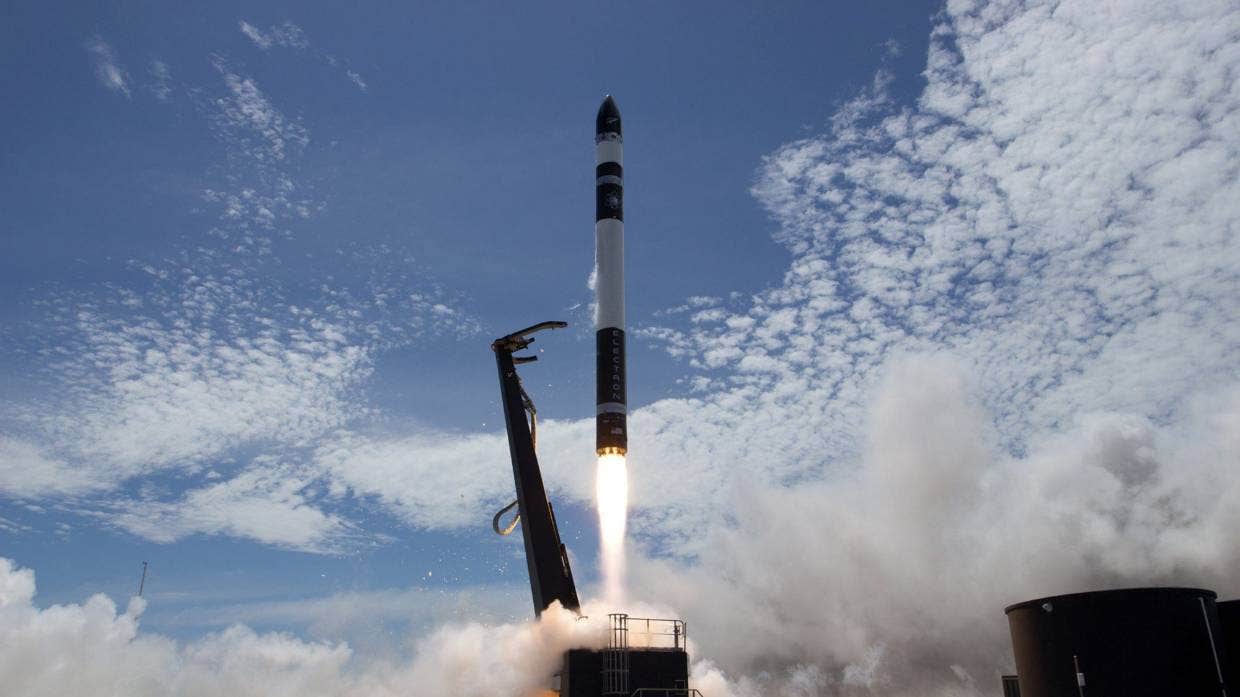
In June, 16 orbital and one suborbital launch took place. Blue Origin once again sent tourists over the Karman Line, China changed crews at the Tiangong Space Station, and Rocket Lab finally launched Capstone to the Moon. SpaceX has been predictably prolific, too. Falcon 9 launched five times in June, and India, generally not very active with launches, surprised the audience with two lift-offs. Sadly, Astra Space suffered a second failure this year, but hopefully, its perseverance will be rewarded.
What launches to expect in July 2022?
According to nextspaceflight.com, the rocket launch schedule for July should be prolific — especially when it comes to debut launches. 28 rocket launches are planned in July, and while we were working on this article, four of them had already taken place. Six more already have confirmed dates, but the rest are still in TBD status. We will definitely sum up the results of July 2022 rocket launches in our regularly updated 2022 rocket launch schedule table, but for now, let’s take a look at companies that have already taken off.
July 1 – ULA Atlas V 541 | USSF-12 (WFOV)
A United Launch Alliance Atlas V rocket has finally launched an experimental Wide Field Of View (WFOV) missile warning satellite into geostationary orbit for the US Space Force as part of the USSF 12 Space Test Program. The mission was postponed twice in April and June and was launched from Cape Canaveral.
July 2 – Virgin Orbit Launcher One/ STP-S28A, Elana 39
Virgin Orbit’s 5th mission, “Straight Up” was scheduled to take place in late June but was delayed due to elevated fuel temperatures. On July 2 at 6:53 UTC, the Cosmic Girl transport Boeing took off from Mojave Airport to deploy a LauncherOne light rocket over the Pacific Ocean. A payload of 9 mini-satellites for demonstration of new technology: 2 for NASA’s ELaNa 39 mission and 7 for the US Department of Defense, was successfully placed into a 500 km low Earth orbit with an inclination of 45 degrees. LauncherOne reached the same orbit during the January mission “Above the Clouds”.
July 7, 11, 15, TBD – Space X Falcon 9 Block 5 – Starlink Group 4-21, 3-1, 3-2, 4-22, 4-25. CRS 25, ELaNa 39
SpaceX carried out only one Starlink mission last month, and now it looks like the company is planning to catch up for the lost time. On July 7, Falcon 9 successfully launched 53 Starlink Group 4-21 satellites to LEO, and on July 11 should send the first batch to SSO. Three more Starlink July missions are still in TBD status.
In addition to Starlink, SpaceX is planning a CRS 25 logistical mission to the ISS. The ELaNa 45 mission, including five CubeSats for technology demonstrations and education, will become an additional payload onboard Falcon 9.
July 12, 22, TBD – Rocket Lab Electron/ NROL-162 (RASR3), NROL-199 (RASR4). ACS 3
Following the successful June launch of the Capstone satellite to the Moon as part of the NASA Artemis mission, Rocket Lab is planning three more missions in July. Two of them, RASR 3 and 4 for the National Reconnaissance Office, are a continuation of the “Birds of a Feather” mission successfully launched with Electron in January 2020. The Wise One Looks Ahead, and Antipodean Adventure missions will launch from LC-1A and LC-1B in Mahia, allowing Rocket Lab not to waste time recharging the pad and carry out launches with a minimum interval (in this case, 10 days). But only if nothing is rescheduled, as both missions are postponed from April.
Also in July, Rocket Lab may launch an innovative satellite for NASA to test composite solar sail technology. To deploy the ACS3 mission to LEO, the company will use the Electron kick stage, which can launch payloads to high altitudes and correct orbital inclination.
July 13 Arianespace/ Vega-C First flight – LARES 2, CELESTA & Others
This is the debut launch of the advanced Vega-C rocket. Compared to its predecessor, the Vega-C has more powerful 1st and 2nd stage engines, as well as larger upper-stage fuel tanks. These characteristics made it possible to increase the carrying capacity from 1.5 to 2.2 tons. The main cargo of Vega-C on the first flight will be an Italian satellite LARES-2, designed to measure the Lense-Thirring precession. Six experimental CubeSats provided by ASI and universities in Italy, France, and Slovenia, will also be on board. The spacecraft has various goals — from assessing the effect of radiation on onboard electronics to conducting experiments on growing plants in microgravity. The mission will be managed by ESA, so the launch will traditionally take place from the Kourou spaceport.
July TBD Isar Aerospace Spectrum First flight
The German startup Isar Aerospace is also going to make a debut in July. The Spectrum launch vehicle will conduct its first orbital flight. The launch will take place from Andøya in Norway. The exact launch date and time, payload, and orbit are unknown.
July TBD Relativity Space Terran-1 First flight
We expect another newcomer in July as Relativity Space is about to test its two-stage Terran-1 rocket. The rocket is made of composite materials, runs on a methane / liquid oxygen fuel off pair, and has a payload capacity of 1.5 tons to LEO. The launch cost is $12 million. Terran 1 launches from SLC16, Cape Canaveral SFS. Relativity called the mission “Good Luck, Have Fun.” So good luck, Terran, and have good fun!
July 17 Firefly Alpha – Second test flight
Companies that suffered failures come back to the starting tables. Firefly Aerospace will conduct a 2nd launch attempt for its Alpha rocket. As a reminder, the 1st demonstration flight on September 3, 2021, ended with a rocket loss. At 15 seconds of flight, one of the 1st stage engines failed, and after about 2 minutes, Alpha lost control, which is why the ground team decided to activate the flight termination system. The rocket was lost along with the DREAM experimental payload. This time Firefly Alpha will have eight technology demonstration satellites and amateur radio on board. The launch is scheduled from SLC-2W, Vandenberg.
July TBD Astra Space Rocket 3 – TROPICS 2,3
Astra Space suffered five setbacks last month, but that doesn’t stop the company. On June 12, NASA’s Tropics 1 exploration mission was aborted minutes after launch. A technical problem in the upper stage prevented the rocket from reaching orbit, and the payload from two Earth Observation satellites was lost. Despite this setback, Astra managed to maintain NASA’s trust. In July, the company will try to rehabilitate itself in Tropics 2 and 3 missions. New Astra rocket launches in July will take place from Cape Canaveral, but the exact dates are not yet confirmed. Insurers keep their fingers crossed!)
That is what July 2022 rocket launch schedule should look like; in the meantime, we will keep you posted on the most interesting events.
And this is how it looked like back in 2021
The rocket launch schedule for July 2021 looks to be one of the biggest in years, with some high-profile figures in the space industry departing Earth for the first time. Richard Branson will be the first to take off with a Virgin Galactic launch on 11th July, just beating rival entrepreneur Jeff Bezos’ Blue Origin flight scheduled for 20th July. So, let’s start from the beginning with rocket launches in July 2021.
11th July: Virgin Galactic Unity 22 Mission Launch
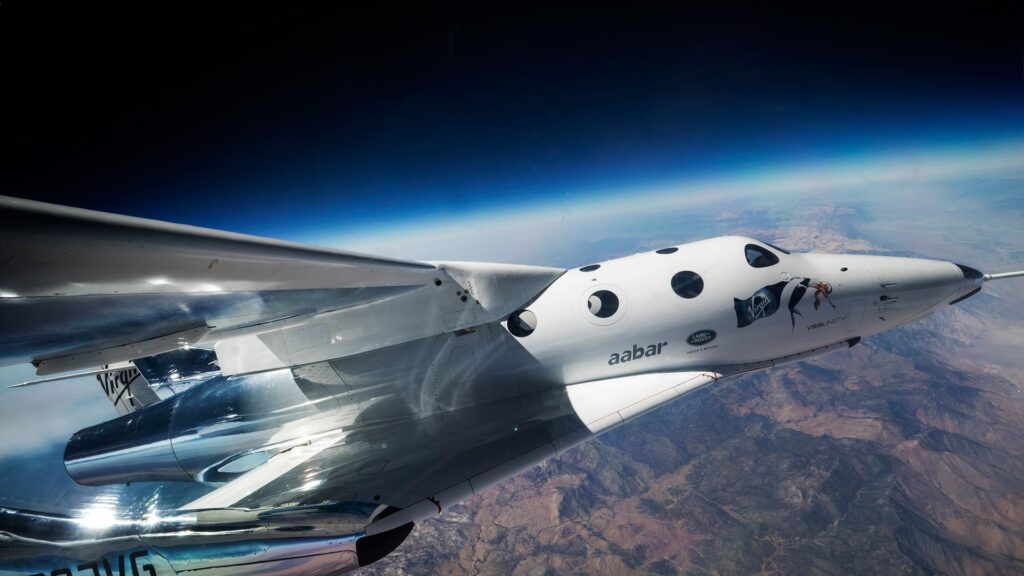
With weather permitting, Virgin Galactic is planning for the twenty-second launch of its VSS Unity spacecraft on 11th July, hence the mission title “Unity 22”. It will be the firm’s fourth spaceflight and the very first to include founder Sir Richard Branson onboard. The VSS Unity will be attached to a VMS Eve carrier plane that will take the craft to an altitude of 50,000 feet. At this point, the VSS Unity will detach and fire its engines to travel into suborbital space. As the first celebrity mission of the July rocket launch schedule, perhaps Branson will take some pleasure in knowing that he topped Jeff Bezos in the race to go to space.
15th July: Russian Proton Rocket Launch
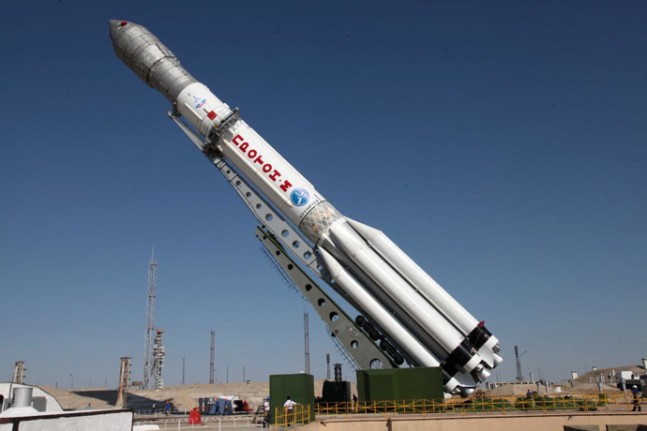
Followers of the ISS news might find this to be a fascinating event in the July rocket launch schedule. On 15th July, ROSCOSMOS will launch a Proton rocket from its Baikonur Cosmodrome located in Khazakstan, for a mission to the ISS. Flights such as these are a regular occurrence to help transport essential supplies as well as resources like fuel, air, and water to the ISS. This mission differs significantly, however. The Proton rocket will be transporting the Nauka lab module, the largest permanent addition to the ISS, for over a decade. The project has been the subject of a severely troubled development, so it will be fascinating to see the project finally take off. The module is scheduled to dock with the ISS on 23rd July.
20th July: Blue Origin’s New Shepard Launch
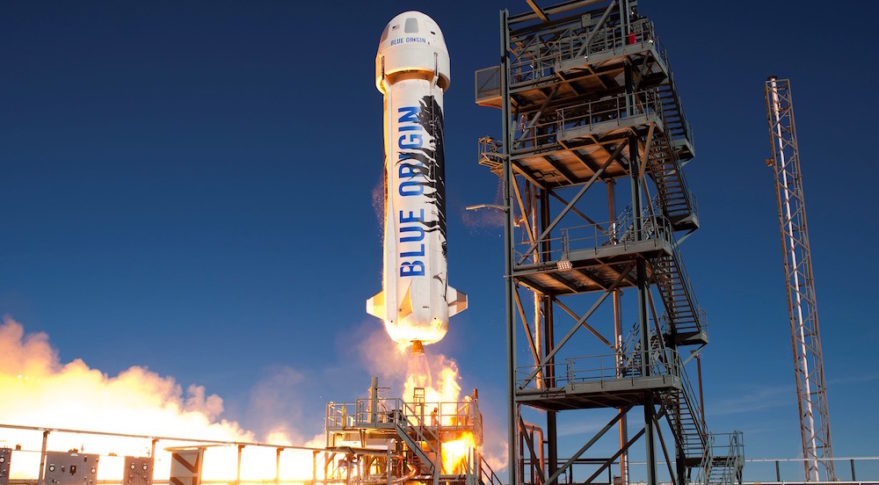
Perhaps the most high-profile of the rocket launches in July 2021, the 20th of the month, will see Blue Origin’s New Shepard craft take to the skies with company founder and Amazon creator Jeff Bezos aboard. The rest of the passenger list will be comprised of Bezos’ brother Mark, crew members, and a mystery passenger who won a $28 million bid to join the flight in what will be the first instance of commercial space tourism.
27th July: Ariane 5 ECA Launch
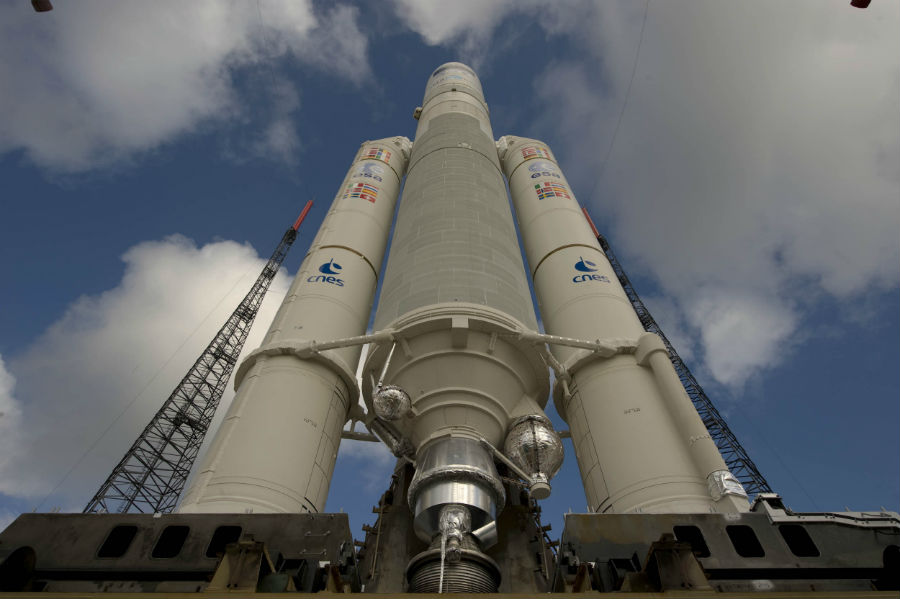
French rocket firm Arianespace will launch their Ariane 5 ECA rocket from the Guiana Spaceport in French Guiana. The rocket will be transporting Eutelsat Quantum and Star One D2 communication satellites into Low Earth orbit.
30th July: Starliner OFT-2 Launch
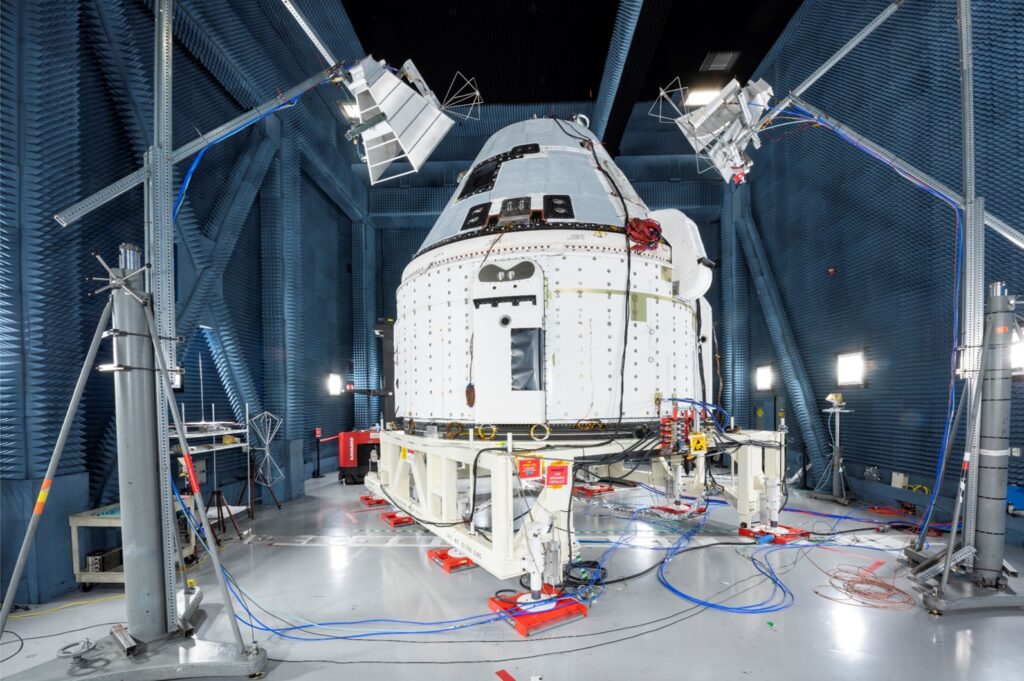
The Orbital Flight Test 2 mission will launch a United Launch Alliance Atlas V rocket from Florida’s Cape Canaveral Space Force Station on 30th July. Onboard the rocket will be Boeing’s CST-100 Starliner unmanned craft that will attempt to dock at the ISS. It’s expected that the mission fares better than its predecessor that suffered a launch failure in December 2019.
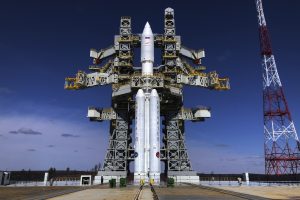

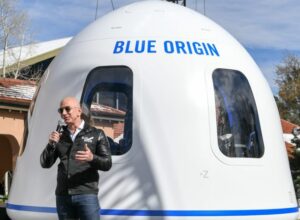



Thank you for your comment! It will be visible on the site after moderation.